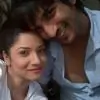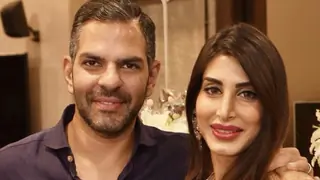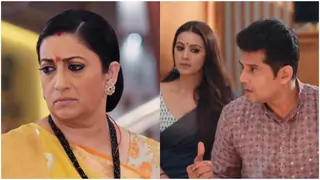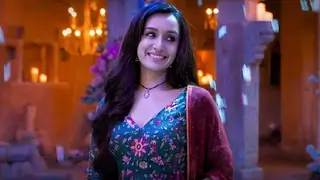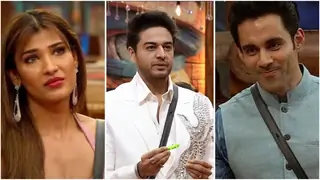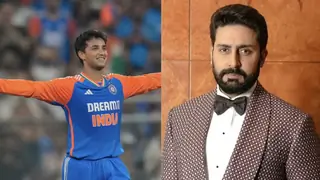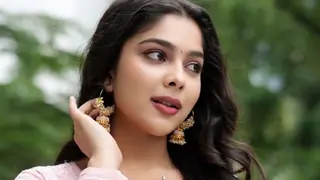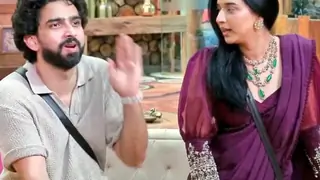Director Abhishek Kapoor's Kai Po Che, based on Chetan Bhagat's novel, The 3 Mistakes of My Life, has had the box office ticking and social scientists blogging. There have been angry opinion pieces on whether the film does justice to the Gujarat riots, whether its writer has toned down the riot depiction to placate a Prime Minister-prospect, whether it depicts the "Indian Muslim community" accurately and more.
While all these discussions are valuable and essential, most writers have ignored what the film does most importantly — Kai Po Che dispassionately presents and indicts violence as an inadvertent expression of misguided urban youth.
The film's tone is distinctly dispassionate. It is one of the few Bollywood films that does not dwell on human relations, press emotionally screechy buttons, nor does it create melodramatic moments of clash and resolution. This is not a successor bromance to Dil Chahta Hai or Rock On. It is the story of three young urban friends who end up brutalising their lives.
The three young men are misguided or, at best, unguided. Ishaan Bhatt (Issh), a cricketing aspirant who failed to make it to the top league of cricket, is deeply frustrated and does not know what to do with his life and finally clutches at straws that are offered to him by his friend (Govind) to run a cricket club. Omkar Shastri (Omi) is a less-than-clever son of a Hindu priest with no view on what to do with his life and waiting to be led by someone somehow. Govind Patel is keen to build a commercial enterprise for economic success. His relative inexperience leads him to chase funding from any source (even a right-wing political party), and invest in a retail spot that appeals to his friends. Issh, Omi and Govind completely lack socio-political consciousness. Each exhibits wariness of Omi's uncle — the Hindutva-politician, Bittu Mama — but none of them articulate why, nor do they have a view on the rapidly communalising environment. They eventually take up clashing positions, albeit entirely inadvertently.
When Bittu Mama bankrolls the business plan of the three boys — a sports retail store-cum-training academy/club, Omi almost mechanically trades in his free time to serve a right-wing communal political party to help his friends access the moneybags. After a while, the lucre is further enhanced. He loves the new SUV his uncle offers him, and growing clout. His parents happen to be on the train in Godhra in 2002. We do not see the train burning. We have a distant aerial shot of the train. We do not see charred bodies. This film is not about the train being burnt. It is about the bumbling, misguided Omi slipping into bigotry and becoming an instrument of communal violence.
Ishaan finds an incredible cricketing talent in a young boy in his club — Ali, the son of a politically active Muslim father. Ishaan does not want to "help the Muslims" post the earthquake. He does not want to protect the "Muslim community" from the post-Godhra rioters. He only wants to save the talented boy so that Ali can deliver on Ishaan's own unfulfilled desire to be an Indian cricketing great. Ishaan does develop a strong bond with Ali and Ali's father, though his support for the marginalised Muslim community both when it is discriminated against post-earthquake and when attacked by virulent Hindu bigots is incidental. The alignment of his aspirations with Ali's cricketing talent makes him act in support of a family and community that is a victim of communal violence.
We do not see protracted terrorising of hapless citizens on the streets of Gujarat. We do not see plundering, looting and murdering endlessly. The film is not about painstakingly depicting the communal violence in Gujarat in 2002. It is about Ishaan's unwitting emergence as the protector of a minority community targeted by communal aggressors, who include Ishaan's friend Omi. The film is about Ishaan and Omi standing on opposite sides. When Omi accidentally shoots Ishaan, we condemn the senseless violence. The politico-religious basis of Omi's action and the inadvertent protection offered by Issh to the Muslim community are practically incidental. The fatal violence is caused by lack of direction, lack of socio-political awareness, and the inability to articulate or channel youthful angst without violence.
Kai Po Che deftly utilises a set of real-life incidents to demonstrate how misguided youth can inadvertently get sucked into senseless violence that above all brutalises the youth that delivers it. It is Ishaan who dies. It is Omi who goes to jail. Two youthful lives are devastated. Is the location of the film in the vitiated environment of Gujarat in 2002 entirely irrelevant then? No. It is essential to make us connect with how real the threat is — for our youth — to be seduced into violence and self-destruction.
In 2025, 500 million Indians will be under-25. International think tanks tell us that no more than 10 million of these will be "employable". Nearly 150 million of these will have the right to vote. In a country that continuously pats itself on the back for its "political freedom", there is deep apathy towards political awareness and consciousness and a tremendous fixation on economic growth as the deliverer of a better life. When we conduct surveys on whether our youth are politically aware, we ask them, "Do you vote?" But we need to go beyond that. We need to empower our youth with the ability to think critically, to understand their own political philosophy, to appreciate the damage that communal and sectarian polarisation will cause. Young boys and girls must know that they can build brighter futures for themselves via economic growth and income generation only within an informed political paradigm free from sectarian vitiation. Till that happens, they will continue to unwittingly step into the tinderboxes of communal flare-ups and almost mechanically deliver mindless violence.
Kai Po Che is a very important documentary that asks us a very important question: Will there be an "ujla savera" for our youth? We must raise the political consciousness of our youth to ensure they can deliver for themselves a better future that's free of communal tension, and sectarian violence. Hai jasba? I hope the answer is "che".
The writer is an adviser on strategy, media, education and healthcare. He wishes to be a filmmaker.














